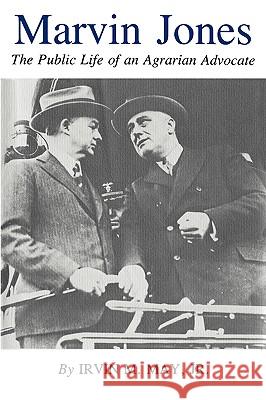Marvin Jones: The Public Life of an Agrarian Advocate » książka
Marvin Jones: The Public Life of an Agrarian Advocate
ISBN-13: 9781585440290 / Angielski / Miękka / 1980 / 324 str.
Son of a north Texas wheat- and cotton-farming family, Marvin Jones grew up with strong agrarian roots and a taste for Democratic politics. Elected to Congress in 1916, he joined the Texas delegation and learned the political ropes from John Nance Garner. Named to the House Agriculture Committee, Jones later became its chairman and directed the destiny of New Deal agricultural legislation in the House of Representatives.
Jones's Panhandle district lay in the 1930s Dust Bowl. As Roosevelt's chairman of the Agriculture Committee, he fought for New Deal farm legislation--low-interest loans and mortgages for farmers, soil conservation, farm subsidies, agricultural research, and new markets for farm products. Many of today's federal agricultural policies were born in his committee room.
As war food administrator in World War II, Jones put his knowledge and experience to use in balancing U.S. agricultural production with military and civilian food requirements. At war's end he accepted a judgeship on the U.S. Court of Claims and later became chief judge, noted for just, compassionate decisions couched in everyman's language.
Jones was a gentle, hard-working man, a realist who extolled the rural life but accepted the urbanization of America. More reserved than his mentor, Garner, less shrewd than his good friend Sam Rayburn, Jones probably surpassed them both in terms of real achievement.
Using archival sources and Jones's memoirs as well as his own numerous interviews with Judge Jones, Irvin May provides a solid account of this transplanted Texan who remained the farmer's advocate throughout his life.











